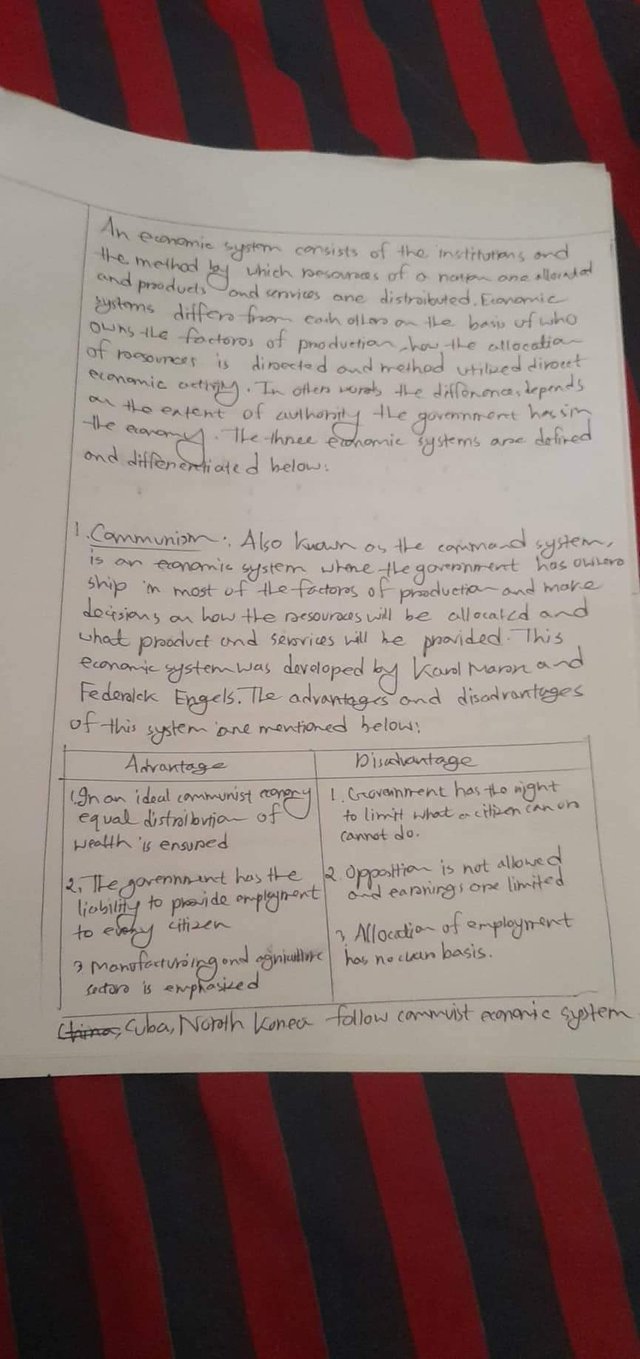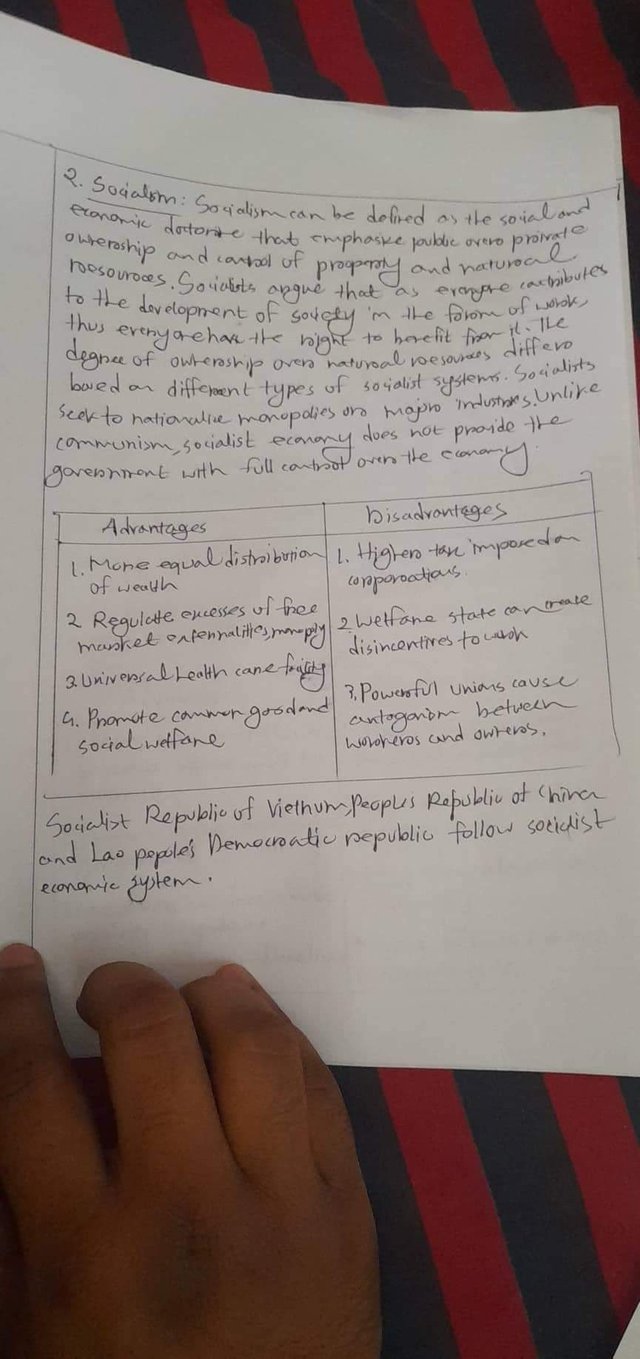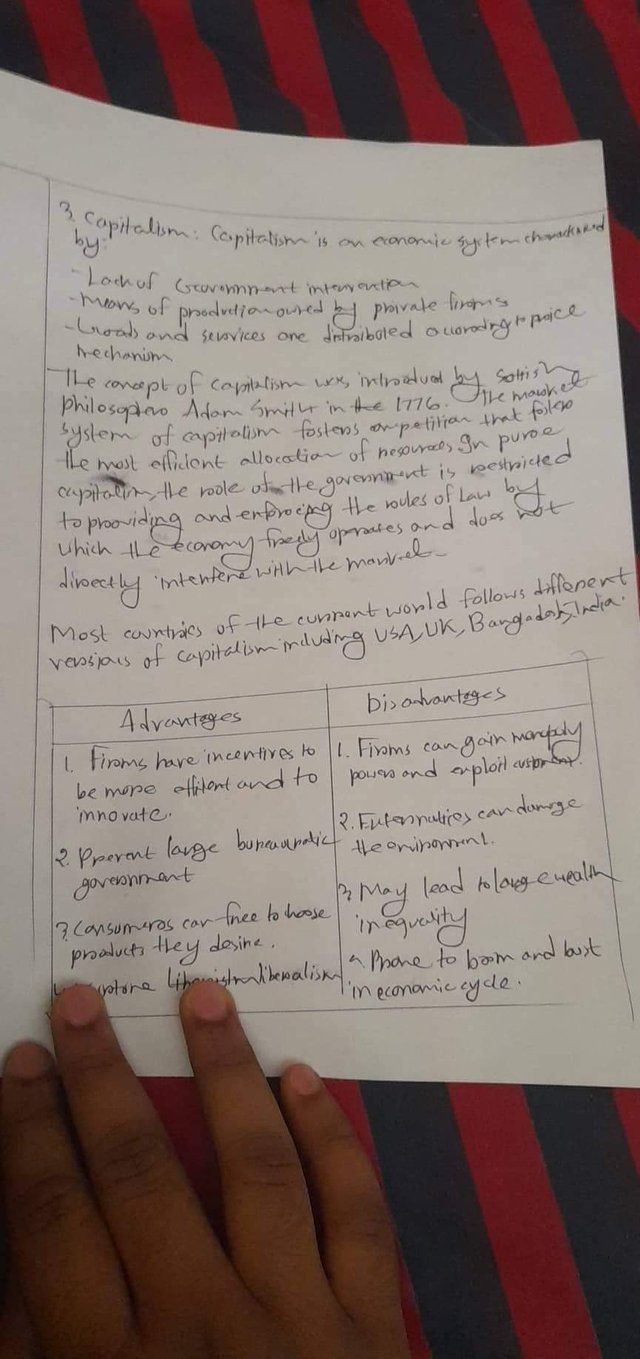Assignment
Hello!!!
My dear friends!
This is @md-raju from #Bangladesh 🇧🇩

| Subject | Descriptions |
|---|---|
| Shot by | md-raju |
| Mode | Normal |
| Device | Symphony |
In the many years since socialism entered English around 1830, it has acquired several different meanings. It refers to a system of social organization in which private property and the distribution of income are subject to social control, but the conception of that control has varied, and the term has been interpreted in widely diverging ways, ranging from statist to libertarian, from Marxist to liberal. In the modern era, "pure" socialism has been seen only rarely and usually briefly in a few Communist regimes. Far more common are systems of social democracy, now often referred to as democratic socialism, in which extensive state regulation, with limited state ownership, has been employed by democratically elected governments (as in Sweden and Denmark) in the belief that it produces a fair distribution of income without impairing economic growth.
Communism, Socialism, Capitalism, and Democracy
Communism, socialism, capitalism, and democracy are all among our top all-time lookups, and user comments suggest that this is because they are complex, abstract terms often used in opaque ways. They're frequently compared and contrasted, with communism sometimes equated with socialism, and democracy and capitalism frequently linked.
Part of the confusion stems from the fact that the word communism has been applied to varying political systems over time. When it was first used in English prose in the mid-19th century, communism referred to an economic and political theory that advocated the elimination of private property and the common sharing of all resources among a group of people; in this use, it was often used interchangeably with the word socialism by 19th-century writers.
The differences between communism and socialism are still debated, but generally English speakers use communism to talk about the political and economic ideologies that find their origin in Karl Marx’s theory of revolutionary socialism, which advocates a proletariat overthrow of capitalist structures within a society; societal and communal ownership and governance of the means of production; and the eventual establishment of a classless society. The most well-known expression of Marx’s theories is the 20th-century Bolshevism of the U.S.S.R., in which the state, through a single authoritarian party, controlled a society’s economic and social activities with the goal of realizing Marx’s theories. Socialism, meanwhile, is most often used in modern English to refer to a system of social organization in which private property and the distribution of income are subject to social control. (The term is also often used in the phrase democratic socialism, which is discussed here.)
Communism and socialism are both frequently contrasted with capitalism and democracy, though these can be false equivalencies depending on the usage. Capitalism refers to an economic system in which a society’s means of production are held by private individuals or organizations, not the government, and where products, prices, and the distribution of goods are determined mainly by competition in a free market. As an economic system, it can be contrasted with the economic system of communism, though as we have noted, the word communism is used of both political and economic systems. Democracy refers not to an economic system but to a system of government in which supreme power is vested in the people and exercised through a system of direct or indirect representation which is decided through periodic free elections. (For discussion about whether the United States is accurately described as a democracy or as a republic, see the article here.)
Source

| Subject | Descriptions |
|---|---|
| Shot by | md-raju |
| Mode | Normal |
| Device | Symphony |

| Subject | Descriptions |
|---|---|
| Shot by | md-raju |
| Mode | Normal |
| Device | Symphony |
sovereignty, in political theory, the ultimate overseer, or authority, in the decision-making process of the state and in the maintenance of order. The concept of sovereignty—one of the most controversial ideas in political science and international law—is closely related to the difficult concepts of state and government and of independence and democracy. Derived from the Latin superanus through the French souveraineté, the term was originally understood to mean the equivalent of supreme power. However, its application in practice often has departed from this traditional meaning.
Source